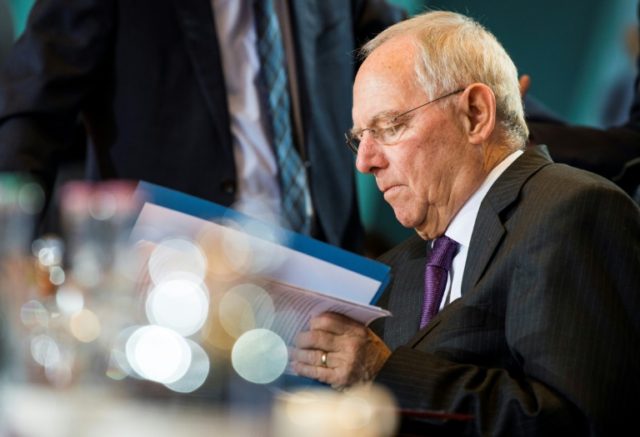Frankfurt am Main (AFP) – The European Central Bank should begin winding down its expansive monetary policy in 2017 as inflation returns in the eurozone, German Finance Minister Wolfgang Schaeuble said in an interview Friday.
“It would probably be right if the ECB starts daring to head for the exit this year,” Schaeuble told the Sueddeutsche Zeitung newspaper — although he acknowledged it would be a “difficult task”.
The ECB has fixed interest rates at record lows in the 19-nation single currency area, as well as offering cheap loans to banks and buying up tens of billions of euros per month of government and corporate debt.
The moves are designed to make more cash from the financial system available to the real economy, powering growth and investment and driving inflation towards its target of just below 2.0 percent.
German economists and political leaders have long grumbled about the policy, objecting that low interest rates hurt savers.
With interest rates on many savings accounts lower than inflation, Germans’ cash piles will shrink in real terms if prices continue to grow and rates remain unchanged.
“I share the concerns” of savers, Schaeuble told the SZ on Friday, noting that inflation is expected to rise further in 2017.
In Germany, prices increased faster in December than in the rest of the eurozone, at 1.7 percent compared to an average of 1.1.
There is “ongoing evidence of German inflation picking up markedly,” IHS Markit economist Howard Archer tweeted Friday, warning that the rise would “fuel tensions with the ECB”.
Schaeuble acknowledged that any exit from expansive monetary policy would be “a difficult task to solve” for the ECB, as moves that look like removing the support could spook financial markets.
The German minister also cast barbs at fellow eurozone members he sees as laggards on economic reform.
“The problem at the moment is not the ECB,” he told the SZ.
“A range of member countries are not delivering what they committed themselves to, namely improving their competitiveness.”
German inflation breaking away from the eurozone average showed that “the problem is the weakness of other states, not Germany’s strength,” Schaeuble said.

COMMENTS
Please let us know if you're having issues with commenting.